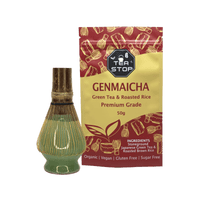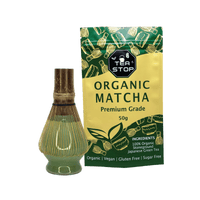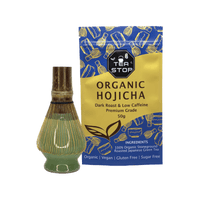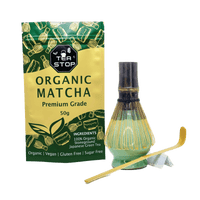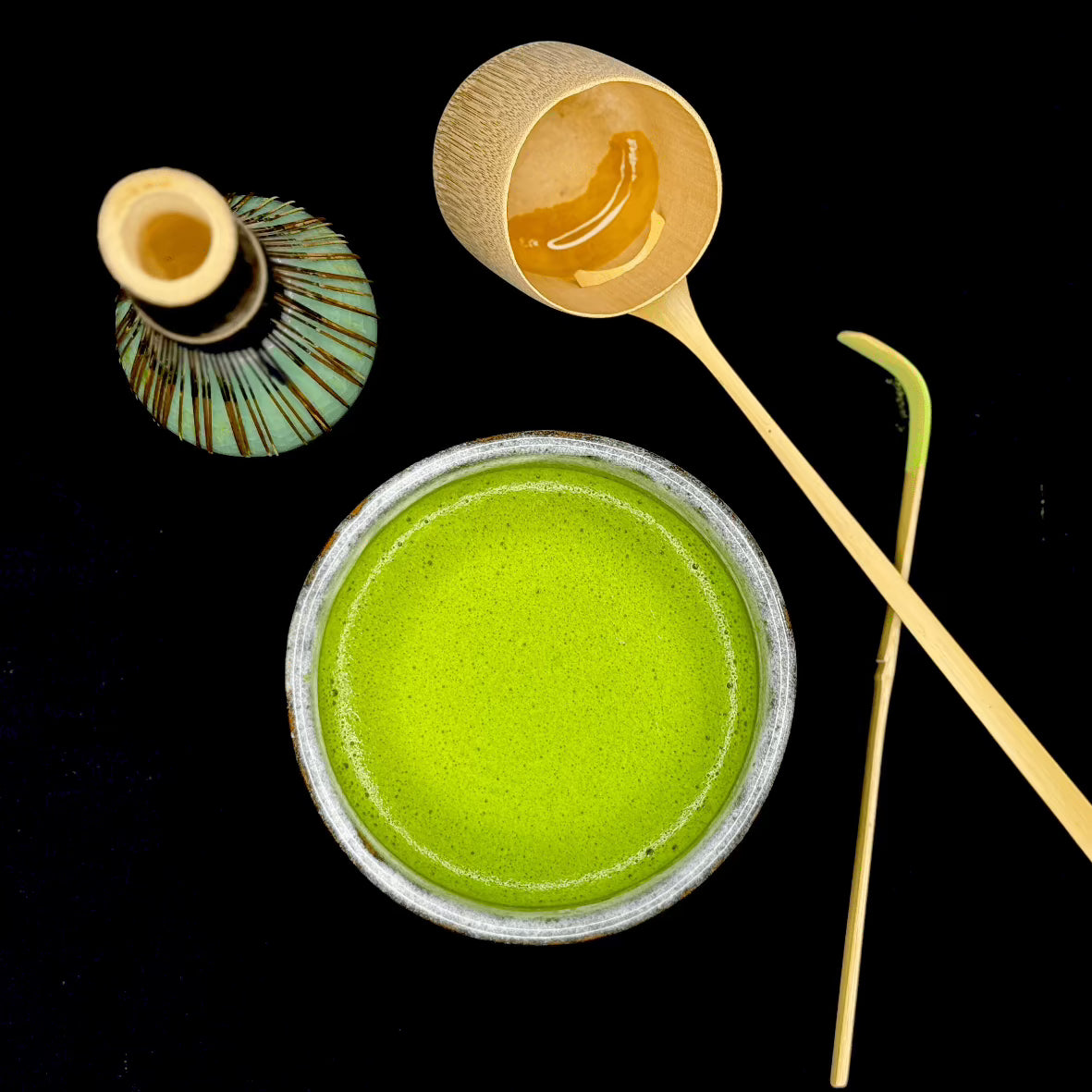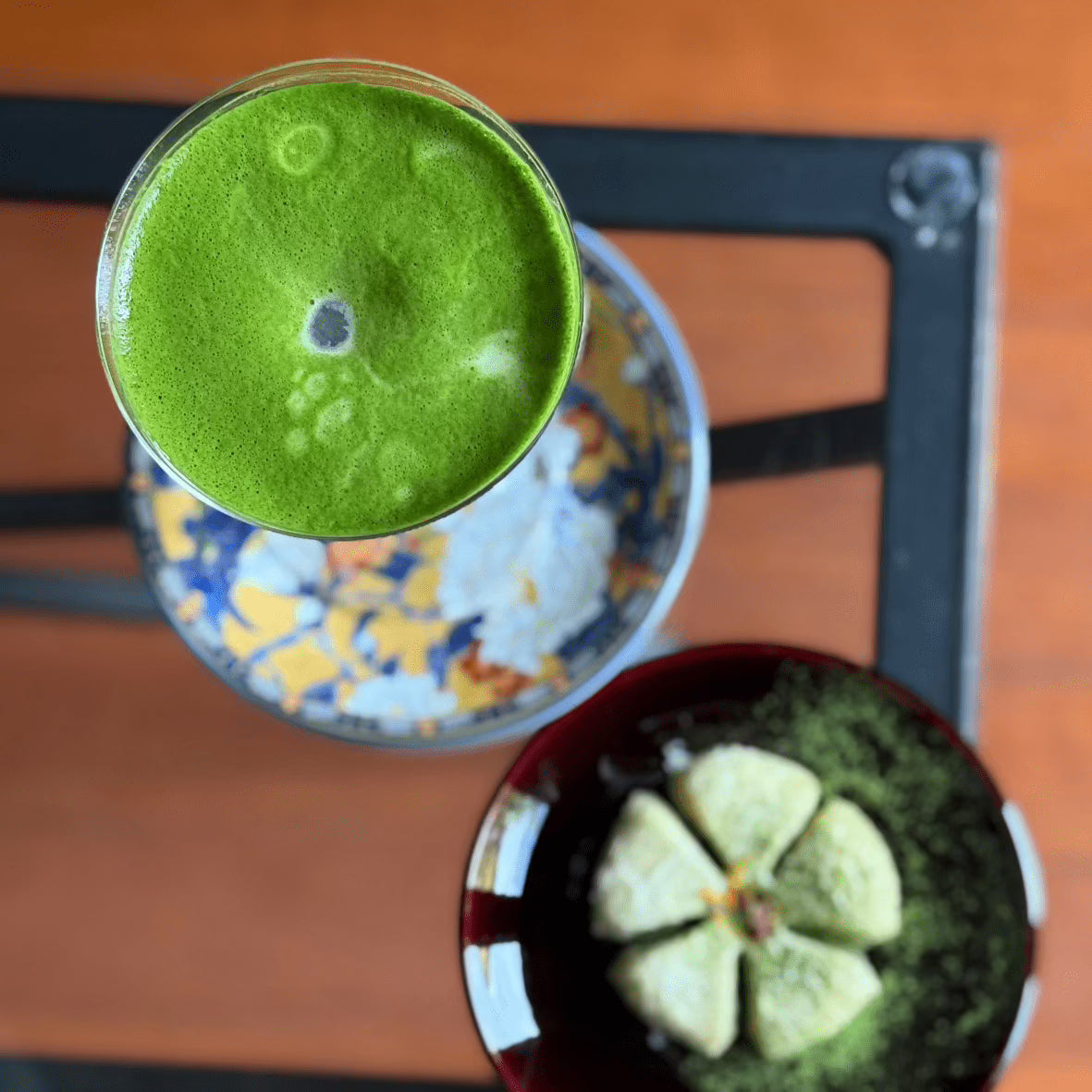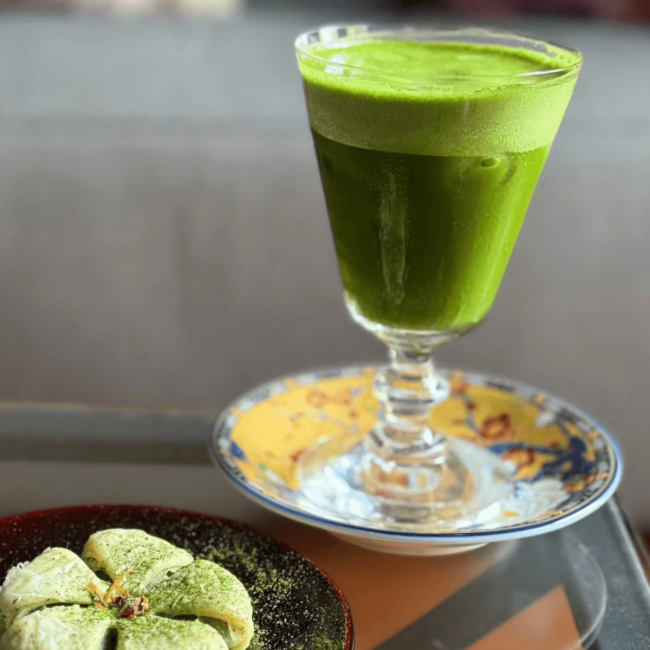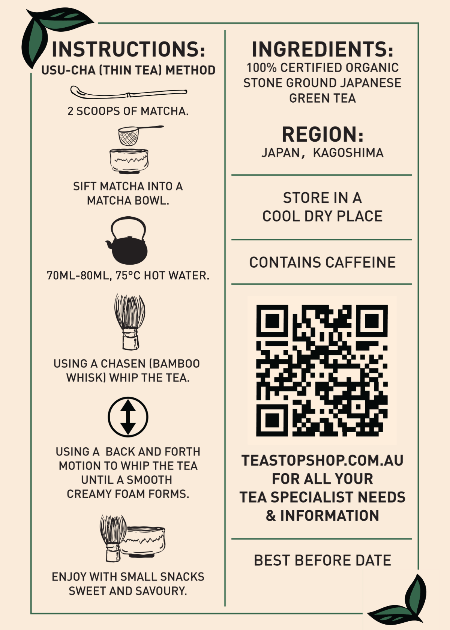
Rooibos Tea for Gut Health: The Natural Digestive Aid
Share
Rooibos tea, made from the leaves of the Aspalathus linearis plant, has been enjoyed for centuries in South Africa's Western Cape. With its naturally sweet flavour and vibrant reddish-brown colour, this herbal tea has gained popularity among tea lovers around the world.
Recently, Australians have started discovering what traditional healers have known all along—rooibos tea supports gut health. This caffeine-free drink in Australia offers gentle digestive relief, helping to reduce inflammation and soothe stomach discomfort without the side effects associated with caffeine.
In this article, we'll explore:
- How rooibos tea antioxidants reduce inflammation and support your digestive system
- How this unique South African tea stacks up against other options for sensitive stomachs
- Practical tips on how to incorporate rooibos tea benefits into your everyday wellness routine
- The additional health benefits that go beyond just digestion
Whether you're dealing with digestive issues or simply looking to enhance your tea-drinking experience, rooibos offers a natural way to promote a healthier gut.
Understanding Gut Health and Its Importance
The digestive system is crucial for overall health, affecting how we absorb nutrients and how our immune system functions. But gut health is about more than just digestion—when our gut microbiome is balanced, it can also impact our mood, energy levels, and ability to fight off sickness. When everything's working well in our digestive tract, good bacteria flourish, the intestinal barrier stays strong, and inflammation is kept under control.
Common Digestive Issues in Australia
Many Australians face challenges with their digestive health that can interfere with daily life:
- Feeling bloated or gassy after meals
- Having irregular bowel movements or constipation
- Experiencing acid reflux or heartburn
- Dealing with persistent stomach cramps
- Having food sensitivities that cause discomfort
The Role of Gut Inflammation in Digestive Problems
When the intestinal lining becomes inflamed, it can lose its barrier function—allowing undigested food particles and toxins to enter the bloodstream. This “leaky gut” condition triggers immune responses, worsening inflammation and impairing nutrient absorption.
To restore digestive balance, it’s important to calm inflammation, strengthen the gut barrier, and support beneficial bacteria. Antioxidants offer a natural and gentle way to do just that.
The Science Behind Rooibos Tea's Benefits for Digestion
How Rooibos Tea Helps with Inflammation
Rooibos tea has anti-inflammatory properties that can help with digestive issues. This is mainly due to its unique antioxidants, especially aspalathin, a rare flavonoid found almost exclusively in this South African plant. When inflammation occurs in the digestive tract, it can lead to uncomfortable symptoms and damage the walls of your intestines. Studies suggest that the polyphenols in rooibos work at a cellular level to calm inflammatory responses, helping to restore balance in an irritated gut environment.
Supporting Your Gut Barrier
The intestinal lining is crucial for your body's defence system. It acts as a barrier that allows nutrients to pass through while keeping harmful substances out. When this barrier is compromised, a condition often referred to as increased intestinal permeability, digestive discomfort worsens. This Organic rooibos tea in Australia supports gut barrier protection through its antioxidant compounds, which help maintain the structure of intestinal cells and reduce oxidative stress that can weaken this protective layer.
Research on rooibos has shown promising results in reducing markers of inflammation in the digestive system. The quercetin content works alongside aspalathin to neutralise free radicals that would otherwise damage gut tissue, creating an environment where healing can happen naturally.
Soothing Digestive Discomfort
For those with bloating or cramps, rooibos tea’s low tannin and caffeine-free nature makes it ideal. Unlike black or green tea, it doesn’t irritate the stomach or interfere with mineral absorption. It also helps relax intestinal muscles, easing cramping and promoting smoother digestion.
This makes rooibos one of the most effective caffeine-free drinks in Australia for anyone seeking calm digestion without stimulation.
Rooibos Tea for Sensitive Digestive Systems in Australia
The absence of caffeine positions rooibos tea as an ideal choice for those managing sensitive digestive systems. Caffeinated beverages can trigger acid production, exacerbate stomach cramping, and stimulate bowel movements in ways that may worsen digestive discomfort. Rooibos offers the ritual and warmth of tea drinking without these concerns, making it a natural caffeine-free digestive aid that supports rather than challenges the gut.
Australians have embraced rooibos tea for digestion through both traditional wisdom and contemporary wellness practices. The tea's reputation as a gentle remedy has grown steadily, with many turning to it during periods of digestive upset or as a preventative measure. Its calming effect on digestion makes it particularly valued by those dealing with stress-related gut issues, where the nervous system's impact on digestive function becomes apparent.
The versatility of rooibos tea for gut health extends across multiple preparation methods popular throughout Australia:
- Loose leaf: Allows for customizable strength and the full expression of rooibos's naturally sweet, earthy notes
- Tea bags: Convenient for busy lifestyles while maintaining digestive benefits
- Iced rooibos: A refreshing option during Australia's warmer months that still delivers anti-inflammatory compounds
- Rooibos lattes: Blended with plant-based milks for a creamy, comforting beverage that soothes the digestive tract
Each form delivers the same digestive and anti-inflammatory benefits while fitting seamlessly into modern Australian lifestyles.
Nutritional Profile of Rooibos Tea Supporting Digestion
The digestive benefits of rooibos extend far beyond its caffeine-free nature. This South African herbal tea contains a unique combination of compounds that work together to support and protect your gut.
Antioxidants for Digestion
Antioxidants like aspalathin and quercetin combat oxidative stress, helping protect the delicate cells lining your intestines. These compounds reduce inflammation and support a balanced gut microbiome.
Vitamins in Rooibos
The vitamin C content in rooibos serves a dual purpose for digestive wellness. While supporting your immune system's ability to defend against pathogens that enter through the digestive tract, this essential vitamin also aids in the absorption of iron from plant-based foods. A robust immune response in the gut helps maintain the delicate balance between beneficial bacteria and potential threats, creating an environment where healthy digestion can occur naturally.
Minerals Supporting Gut Health
Rooibos delivers a thoughtful blend of trace minerals that support the enzymatic processes essential for proper digestion:
- Copper assists in the formation of enzymes that break down food particles
- Zinc supports the maintenance and repair of the intestinal lining, helping to prevent leaky gut syndrome
- Calcium aids in muscle contractions throughout the digestive tract, promoting healthy peristalsis
These minerals work in harmony with digestive enzymes, ensuring that nutrients from your meals are properly absorbed and utilised by your body.
Additional Health Benefits of Rooibos Tea Beyond Digestion
While rooibos is great for digestion, it also has positive effects on the entire body that promote gut health. This is because different systems in our body are connected, so when one area improves, it often benefits others as well.
Cardiovascular Support and Digestive Connection
Emerging research suggests rooibos tea and heart health may be closely linked. Studies indicate that rooibos may help lower LDL cholesterol while raising HDL cholesterol. Better circulation and reduced inflammation mean improved nutrient delivery to the digestive tract, enhancing overall gut function.
Blood Sugar Balance for Metabolic Harmony
The aspalathin content in rooibos shows promise for blood sugar regulation, particularly relevant for individuals managing type 2 diabetes. Stable blood glucose levels reduce inflammatory responses that can trigger digestive distress. When blood sugar spikes and crashes diminish, the gut experiences less stress and maintains steadier function throughout the day.
Whole-Body Wellness Philosophy
Rooibos embodies a holistic approach to health where no system operates in isolation. Its antioxidant activity, mineral content, and anti-inflammatory properties work synergistically across multiple body systems. This interconnected support means that drinking rooibos for heart health or metabolic balance simultaneously nurtures digestive wellness—a gentle reminder that true vitality comes from supporting the body as an integrated whole.
Incorporating Rooibos Tea into Your Daily Routine for Digestive Health: Tips and Precautions
Making Rooibos Tea for Gut Health part of your everyday ritual requires thoughtful timing and preparation to maximise its digestive benefits. The beauty of this South African herbal tea lies in its flexibility—there's no single "right" way to enjoy it.
Optimal Timing for Digestive Support
Drinking rooibos tea daily can be most beneficial when consumed at strategic moments throughout your day:

- Morning ritual: Start your day with a warm cup on an empty stomach to gently awaken your digestive system without the jolt of caffeine
- After meals: Sip rooibos 20-30 minutes following lunch or dinner to support digestion and reduce bloating
- Evening wind-down: Enjoy a cup before bed to soothe any digestive discomfort without disrupting sleep patterns
The best time to drink rooibos ultimately depends on your body's unique needs. Some find relief drinking 2-3 cups spread throughout the day, while others prefer concentrating their intake around meals when digestive support matters most.
Preparation Methods That Preserve Beneficial Compounds
How to Brew Rooibos Tea for digestion enthusiasts should know include:
- Steep loose leaf or tea bags in water heated to 93-96°C for 5-7 minutes to extract maximum antioxidants
- Avoid boiling the tea directly, as excessive heat can degrade delicate compounds like aspalathin
- Use filtered water to prevent mineral interference with the tea's natural properties
- Consider a longer steep time (up to 10 minutes) for a more robust flavour without increasing bitterness
Creative Australian-Inspired Variations
Australian tea lovers have embraced rooibos in refreshing formats:

- Iced rooibos: Brew double-strength tea, cool, and serve over ice with fresh lemon
- Rooibos latte: Blend brewed tea with frothed oat or almond milk and a touch of honey
- Digestive blend: Combine rooibos with ginger and peppermint for an extra digestive boost
Considerations and Precautions When Using Rooibos Tea as a Digestive Aid
While rooibos tea is generally safe, it’s important to be aware of potential rooibos tea side effects. Rarely, some individuals may experience allergic reactions such as skin irritation, mild stomach upset, or difficulty breathing. Those with hormone-sensitive conditions or liver issues should consume it in moderation.
If you’re pregnant, breastfeeding, or taking medication especially for blood pressure, diabetes, or liver health. Consult your doctor before drinking rooibos regularly.
Tea Takeaway
Rooibos tea is a natural digestive aid with anti-inflammatory benefits that relieve stomach discomfort without caffeine or high tannins. Australia's herbal tea market values this South African gem for evidence-based, mindful, and sustainable wellness. Whether for occasional issues or long-term gut health, rooibos offers a caffeine-free, antioxidant-rich option anytime. Brewing a daily cup blends ancient wisdom with modern wellness for a nourishing digestive boost.
Ready to experience the digestive benefits of rooibos tea for yourself? Try Rooibos Chai from Tea Stop Shop – a soothing, caffeine-free blend packed with antioxidants to support gut health and overall wellness. Brew a cup today and give your digestive system the gentle care it deserves!
FAQs (Frequently Asked Questions)
What is rooibos tea and how does it support gut health?
Rooibos tea is a herbal tea made from the leaves of the Aspalathus linearis plant. It supports gut health by providing natural digestive aid properties, including anti-inflammatory effects that help soothe the intestinal lining and reduce gut inflammation.
How does rooibos tea help with common digestive issues in Australia?
Many Australians face digestive challenges such as bloating, cramps, and inflammation. Rooibos tea's low tannin content and anti-inflammatory compounds help soothe digestive discomfort, support the gut barrier, and promote overall digestive wellness.
What are the key antioxidants and nutrients in rooibos tea that benefit digestion?
Rooibos tea contains antioxidants like aspalathin and quercetin, which combat oxidative stress in the gut. It also provides vitamin C and essential trace minerals that support the intestinal lining and contribute to healthy digestive function.
Is rooibos tea suitable for sensitive digestive systems and caffeine-sensitive individuals?
Yes, rooibos tea is naturally caffeine-free, making it an ideal choice for those with sensitive digestive systems or caffeine sensitivity. Its gentle nature helps reduce digestive discomfort without stimulating the gut excessively.
How can I incorporate rooibos tea into my daily routine to enhance digestive health?
To maximise digestive benefits, drink rooibos tea daily, ideally after meals or during times of digestive discomfort. Brewing methods that preserve beneficial compounds and creative Australian-inspired variations can make it a delicious and effective part of your routine.
Are there any precautions to consider when using rooibos tea as a digestive aid?
While rooibos tea is generally safe, it's important to be aware of potential allergies or interactions with medications. Consulting a healthcare professional before making it a regular part of your digestive health regimen is recommended, especially if you have existing health conditions.

